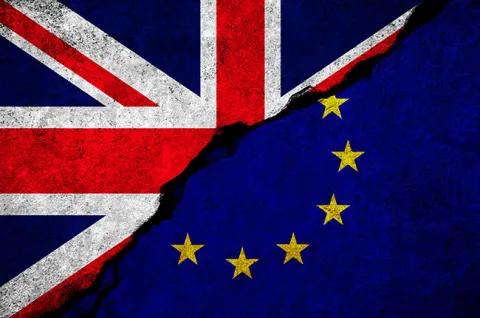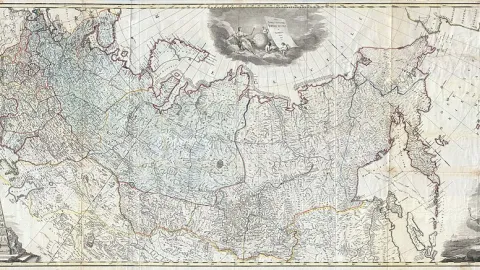Crucial months ahead. What will be the fate of the Unitary Patent system?
September 22, 2018
The patent world is holding its breath in expectation of the judgment of the German Federal Constitutional Court (BVerfG) on the complaint that was filed last year against ratification of the UPCA. The judgment is even more crucial as the UK is preparing for Brexit and once it has left the European Union, this will complicate considerably, if not impede the entry into force of the Unitary Patent system. Kluwer IP Law asked two experts, Alexander Robinson of Dehns and Pieter Callens of Eubelius, co-author of The Unitary Patent and the Unified Patent Court, whether time is running out for the UP system.
The UPCA can enter into force on the first day of the fourth month after Germany's ratification. If this is to be before the Brexit date of 29 March 2019, it means that the German Federal Constitutional Court would have to reject the complaint against the UPCA as inadmissible and the German ratification process would have to be completed in November of this year. Do you think this scenario still has a chance to come true?
Alexander Robinson: ‘In theory there is still a chance that this could happen, but realistically I would say that the likelihood seems to be zero unless the Federal Constitutional Court and the German government have some big surprises in store for us.
I am not an expert on German legislative procedure and so I do not know how quickly the German government could formally ratify the UPCA if it is given the "all-clear" by the BVerfG. However, the end of November is less than two and a half months away, which is not a very long time in legislative terms! To get to that point we would need the BVerfG to issue a final decision entirely in favour of ratification of the UPCA as it stands, after which (I believe) the German President would need to sign the instrument of ratification and arrange for this to be deposited in Brussels, all within the next 11 weeks or so.
These are a number of procedural acts which would need to be carefully sequenced, and an 11-week timescale for achieving all of this seems unrealistically speedy to me even if the BVerfG were to surprise us all by issuing a final decision tomorrow. In addition to this, we should bear in mind that the Preparatory Committee estimates that a six- to eight-month period will be required for proper implementation of all the tasks foreseen for the Provisional Application Phase. Hasty ratification of the UPCA by the German government, with the effect of foreshortening the Provisional Application Phase to only a few months, would have a detrimental effect on the proper completion of all the preparatory tasks.

We should also briefly acknowledge at least one of several elephants in the room, namely the fact that for Germany to ratify the UPCA in its current form, the BVerfG will need to dismiss the complaint entirely. I stress here that I am not an expert in German constitutional law, but from my discussions with German practitioners I understand that this cannot be taken for granted. As I understand it, the complaint could potentially be dismissed summarily in writing as being inadmissible (for example, if the complainant is found not to have proper standing to have filed the complaint, or if the complaint does not fall within the rather narrow grounds of admissibility for such complaints which are foreseen in German law).
However, if the complaint is admitted, I understand that some practitioners believe that at least some of the grounds for the complaint may have some merit and it might then be difficult to predict how the decision would play out. Either way, I understand that many practitioners now expect a hearing to be appointed, at least on the admissibility point (i.e. avoiding a summary written decision) – and, if the case is admitted, a hearing is also expected on the merits of the case. Any hearing will spell further delays to the eventual decision even if this is positive for the UPCA.
All of these factors, to me, conspire together to make it extraordinarily unlikely that Germany will ratify the UPCA prior to the end of November.’
Pieter Callens: ‘It is clear that this timing is very short. This summer there were some rumors that a judgment was to be expected in October-November, but is very unclear where those rumors came from and if they were reliable. I personally doubt that we will have a completed ratification process by November.’
Do you expect Germany to complete ratification of the UPCA as soon as possible in case the constitutional complaint is rejected by the BVerfG? Or do yo see (political) reasons why the German government may delay ratification, for instance uncertainty regarding the UK?
Callens: ‘I do believe that there is a lot of political will in Germany to quickly ratify after the judgment of the German Federal Constitutional Court. I am pretty confident that the German government shall not politically block further ratification even with the UK issue at hand. I believe there are other EU member states where such pressure would be more likely.’
Robinson: ‘I would not like to second-guess the German government's intentions! However, in the event of a rejection of the complaint by the BVerfG, I can foresee several good reasons for Germany to take its time.
Firstly, at least one more country other than Germany needs to ratify the Protocol on Provisional Application before anything can happen. Secondly, once this has been done, adequate time needs to be provided for the Provisional Application Phase to be properly carried out, which is estimated as requiring at least six to eight months. And thirdly, it would seem unwise to ratify the UPCA and set the countdown in motion before there is clarity on the UK's future position in the system (if any) and before any consequential amendments to the UPCA have been made.
For example, if the UK does negotiate continued membership, amendments to the UPCA are likely to be needed to reflect the UK's changed status as a non-EU member state. If the UK is excluded from the future of the system, amendments will still be required, for example to amend the portion of the UPCA which provides for a part of the Central Division to be located in London. And that is before we even consider the realities of re-opening bids for the "London" part of the Central Division, which will require more political horse-trading between the remaining states.’
It has been said that, if the UP system enters into force before the Brexit, but the UK leaves the EU soon after, the changes that will have to be made to the UP system are not that impressive. Do you agree?

Robinson: ‘It is very difficult to be certain here. We have seen a number of opinions from different commentators (such as the opinion of Richard Gordon QC and Tom Pascoe, or that of Prof. Dr. Ohly) on this matter. Most seem to agree that amendments will be required, but then they diverge on which amendments may be necessary. I do not want to go into the details of such analyses here as they are widely-available elsewhere, but I think it is safe to say that there is considerable uncertainty on this point. And at the root of this all, there is also a fundamental uncertainty regarding the interpretation of the CJEU's Opinion 1/09, which killed off the previous version of the UPCA. Both the Gordon/Pascoe opinion and the Ohly opinion, I believe, rely on one particular interpretation of an especially unclear point of reasoning in Opinion 1/09. If their interpretation is correct, then the UK could potentially continue to participate, subject to appropriate amendments (but it remains to be seen what those amendments might be). If the alternative interpretation is correct, however, it is difficult to see how the UK could continue to participate after Brexit. Even in that case, however, amendments to the UPCA would be required, as I have noted above, for example to remove references to London as being home to part of the Central Division.’
Earlier this year, an agreement was reached between the UK and the EU on a transitional period, which would last from 29 March 2019 to 31 December 2020. Could the UP system be saved by including provisions on the system in such an agreement? What is the state of affairs?
Robinson: ‘A draft UK-EU withdrawal agreement has been produced, but not yet signed off. Leaving aside the risks of a "no deal" scenario – which is still a (frighteningly realistic) possibility – the draft agreement does not include any explicit provisions relating to the Unified Patent Court or Unitary Patent. I consider it unlikely that any such passages will be added, not least in view of the fact that November this year is being talked of as the final deadline for finalising the text of the agreement and we have not publicly seen any proposals on this point from either side of the negotiating table.

In any event, it seems likely to me that further agreements would need to be struck to enable continued UK participation in the UPCA and Unitary Patent systems beyond the end of the transition period if (and this is a big "if") such continued participation is sought. It seems to me that the negotiations for such agreements would be likely to take place as part of, or alongside, negotiations on the overall future of the UK-EU relationship, which will take place during the transition period.
If the UPCA were to come into force with the UK as a member during the transition period and then the UK were to leave the UPCA system at the end of the transition period, agreements would still be needed on transitional measures, for example to determine the fate of cases pending before any UK divisions of the UPC (including the London part of the Central Division) and to provide for continuity of patent protection in the UK where such protection had been conferred on a unitary basis.’
Callens: ‘I am too far away from these negotiations to have a clear look on the state of affairs, but in my sense this agreement plays a crucial role in the future of the UP system. We should avoid that the UP system is being overlooked when drafting this agreement.’
Will the UP system survive if it doesn't enter into force before the Brexit? Is there a serious risk that ten to twenty years of negotiations on this issue go down the drain?
Robinson: ‘Provided that the BVerfG ultimately throws out the constitutional complaint, I see no reason – on paper, at least – why the UPCA should not enter into force looking substantially as it appears now, even if that is without UK participation. The political support and support from business seems to be broad enough and deep enough that it will not be abandoned lightly. However, any UPC system without the UK as a member could well be significantly less attractive and there may be a reduced incentive for businesses to make use of the Unitary Patent system and/or the UPC as a forum for disputes if their effect does not extend to the UK and if the UPC is deprived of the expertise of British judges sitting alongside their counterparts from elsewhere in Europe.
For negotiations to completely "go down the drain" would, to my mind, require the BVerfG to uphold the constitutional complaint in whole or in part. If the decision of the BVerfG requires substantial changes to be made to the UPCA before it is compatible with the German constitution, negotiations could need to be reopened and at that point it is difficult to predict what might happen.'
Callens: ‘I am not a fortune teller but I still believe that the UP system can survive even it does not enter into force before the Brexit. I believe that too much effort has gone into this project for the EU member states to give this up in the context of the Brexit discussions. Politically, I believe the participating member states even owe this to their companies.
The risk that ten to twenty years of negotiations go down the drain, however, is always there. I have always been a strong believer in a good outcome, but I do have to admit that the upcoming months will be the hardest weather the project will have to bear since the UPC agreement was signed. Nevertheless, the project is a "survivor". I can still remember the tough proceedings before the EUCJ, which eventually did not take down the project either.’
You may also like















Attentive Observer
It is the first time that two promotors of the UP/UPCA take a more realistic view about the future of the UPC and the post Brexit participation of U.K. It is interesting to note that they mention the Gordon/Pascoe report and Prof. Ohlys paper, but they omit to mention the MPI study presented by Mr Bausch on this same blog. One wonders why. As far as Brexit negotiations are concerned, one should not forget that in principle only what was discussed in the first basket, can be part of the second one. There are enough problems there, trade marks, design, indication of origin to be solved before dealing with a tool which still is virtual. This is the more so that for patents the participation of U.K. in the EPO was never at stake. It is also worth remembering that the 2d chamber of the GFCC has issued this March a decision about temporary judges. Judges may be appointed on a temporary basis, but they have to be life time civil servants and may not be reappointed after their term. And it is the 2d chamber which deals with the EPO/UPC complaints. Temporary renewable appointments is exactly what is happening at the BA and should happen at the UPC, albeit for different periods. Even if the 2d Chamber comes to the conclusion that this should not apply at international level, I am curious how this can be justified. In Art 10 of the Statute annexed to the UPCA, a judge can be removed from its post by a decision of the Presidium, but there are apparently no means of redress opened to the judge. How is this compatible with a judge's independence? It is not because too much effort has been put in the UPC as it stands that it has to be pushed at any cost! The forced delay should be used to improve the system and not to push it at any rate! The UPC will not necessarily allow to bring stability in Europe when validity of patents is at stake, as their is no reason for the BA/EBA of the EPO to accept the case law of the UPC and vice-versa. This is a factor of uncertainty which has always be ignored! Techrights FINGERS OFF!! Directly or indirectly. I do not wish my comments to be misused for all the weird theories you have about the EPO or the UPC!
Alexander Robinson
Hello Attentive Observer, Thanks for your comment. Regarding the MPI study and your speculation about that, I can assure you that the omission on my part is entirely coincidental and not at all intentional. My comments were solicited - and provided - a couple of weeks ago. The MPI study was released, and the Milan conference held, while I was on holiday (in Italy, as it happens) and I have not yet had the chance to digest these or comment on them (not have I been asked to, so far). I suspect that similar factors hold true for my co-commenter. I just got home today in time for the publication of this post. So no conspiracy - just a fluke of timing! Alex
Russell Barton
Can anyone explain German conventions regarding ratification of treaties in relation to political considerations of the executive? As I understand the UK's workings in relation to international treaties- parliament is only generally involved in placing obligations from international law into the domain of domestic law. Parliament isn't generally involved with any decision about ratification. The executive, through the foreign secretary and prime minister, could stall or elect not to ratify a treaty for any political reason of their choosing. In Germany, as I understand it , ratification is by the President, and international treaties are generally the domain of the executive. However in some cases (including the UPCA) parliaments vote directly on ratification of the international treaty itself rather than on related domestic law. I guess that might be related to Germany being more "monist" than the UK. If the German parliaments actively vote to ratify a treaty (with the required majority) and the BVerfG gives the treaty the all clear, then is the convention for the President to always go ahead with the ratification or may the Foreign Ministry/Chancellor ask the President to stall or stop ratification for any opportune political reason?